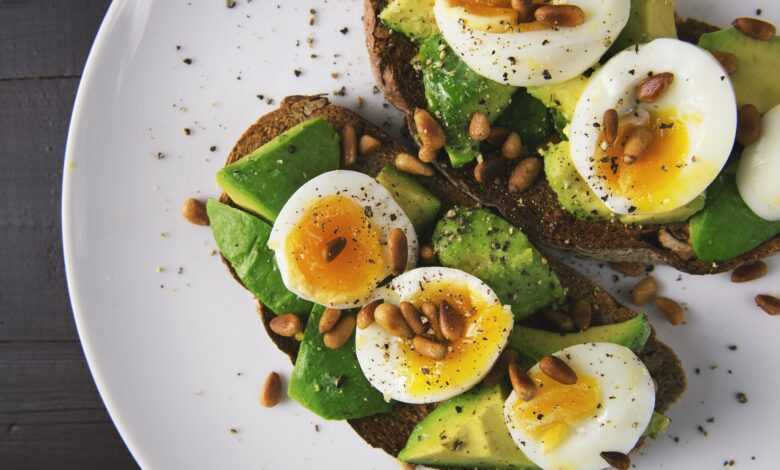
Low Calorie Diets for Men: A Step-by-Step Guide to Safe and Sustainable Weight Loss
Low-calorie diets have become a popular weight loss approach for men who are looking to improve their health and achieve a healthier weight. A low-calorie diet is a diet that involves reducing the number of calories consumed each day with the goal of creating a calorie deficit and promoting weight loss. While a low-calorie diet can be effective, it is important to follow it in a healthy and balanced manner to avoid nutrient deficiencies and other health problems.
Benefits of Low-Calorie Diets for Men:
- Promotes weight loss: The most obvious benefit of a low-calorie diet is weight loss. By reducing the number of calories consumed, it is possible to create a calorie deficit and promote weight loss. This can help men achieve a healthier weight and reduce the risk of obesity-related health problems such as heart disease, diabetes, and high blood pressure.
- Improves cardiovascular health: A low-calorie diet can help improve cardiovascular health by reducing body fat, lowering blood pressure, and improving cholesterol levels. This can reduce the risk of heart disease and stroke, which are two of the leading causes of death for men.
- Enhances metabolism: Low-calorie diets can help enhance metabolism, which can lead to more efficient fat-burning and weight loss. By consuming a balanced, nutritious diet that is high in protein, fibre, and healthy fats, men can help boost their metabolism and achieve their weight loss goals.
- Increases energy levels: A low-calorie diet that is rich in nutrients can help increase energy levels, which can make it easier to maintain an active lifestyle and participate in physical activity. This, in turn, can help promote weight loss and improve overall health.
- Improves mental health: Weight loss and improved health can have a positive impact on mental health. A low-calorie diet can help men feel better about themselves and reduce feelings of depression, anxiety, and low self-esteem.
It is important to note that low-calorie diets should not be followed for extended periods of time without medical supervision, as this can lead to nutrient deficiencies and other health problems. Additionally, it is important to combine a low-calorie diet with regular physical activity for optimal weight loss results. By following a balanced and nutritious low-calorie diet and incorporating physical activity into their daily routine, men can reap the many benefits of a low-calorie diet and achieve their weight loss goals.
Understanding the fundamentals of calorie intake and weight loss
Calorie intake and weight loss are closely related concepts that are fundamental to understanding how the human body gains and loses weight.
Calorie intake refers to the amount of energy consumed from food and drinks. This energy is measured in units called calories. Our bodies use the calories from food and drinks to fuel various physical and mental processes, including physical activity, metabolism, and organ function.
Weight loss occurs when the body expends more energy than it consumes. This creates a calorie deficit, which forces the body to tap into stored fat as an energy source. Over time, consistent calorie deficits can result in significant weight loss.
However, not all calories are equal. Different foods provide different amounts of energy, as well as other nutrients such as vitamins, minerals, and fibre. A diet that is high in processed foods, added sugars, and unhealthy fats can lead to weight gain, even if the number of calories consumed is low.
On the other hand, a diet that is rich in whole, nutrient-dense foods, such as fruits, vegetables, lean proteins, and healthy fats, can support weight loss and promote overall health. This is because these foods are typically lower in calories, higher in fibre, and more satisfying, which can help reduce overall calorie intake and promote weight loss.
It’s important to keep in mind that calorie intake and weight loss are influenced by many factors, including genetics, age, gender, and physical activity levels. As a result, there is no one-size-fits-all approach to calorie intake and weight loss. To achieve optimal results, it is important to work with a healthcare professional to determine an appropriate calorie intake and develop a personalized weight loss plan that takes into account individual needs and goals.
Creating a meal plan for a low-calorie diet
Creating a meal plan for a low-calorie diet is an important step towards achieving weight loss goals. A well-planned low calorie meal plan can help you consume the right amount of nutrients and energy to support healthy weight loss and maintain good health. Here are some tips for creating a successful low-calorie meal plan:
- Determine daily calorie needs: To create an effective meal plan, you need to know how many calories you need to consume each day. You can determine this by using an online calorie calculator or working with a healthcare professional.
- Focus on nutrient-dense foods: A low-calorie diet does not have to mean sacrificing taste or nutrition. Focus on incorporating nutrient-dense foods like fruits, vegetables, lean proteins, and healthy fats into your meals. These foods are high in nutrients, low in calories, and can help you feel full and satisfied.
- Plan your meals: Plan your meals in advance to help ensure you are consuming a balanced and nutritious diet. This can help you avoid last-minute decisions that may result in eating unhealthy foods.
- Control portion sizes: Paying attention to portion sizes is critical when following a low-calorie diet. Use smaller plates and bowls, and measure out portions to ensure you are consuming the right amount of food.
- Limit processed foods: Processed foods are often high in added sugars, unhealthy fats, and calories, and can be a major barrier to weight loss success. Try to limit processed foods and opt for whole, natural foods instead.
- Make healthy choices when eating out: Eating out can be challenging when following a low-calorie diet. Look for restaurants that offer healthy options and make smart choices, such as ordering grilled chicken or fish, and skipping the butter and high-fat sauces.
- Hydrate properly: Staying hydrated is important for overall health and can also help you feel full and satisfied. Aim to drink at least 8 glasses of water per day and limit sugary drinks like soda and juice.
By following these tips, you can create a well-rounded and effective meal plan that will support your weight loss goals while providing your body with the nutrients it needs.
Incorporating protein for muscle maintenance and weight loss
Protein is an essential nutrient that plays a crucial role in muscle maintenance and weight loss. Here are some tips for incorporating protein into a low-calorie diet:
- Choose high-quality protein sources: Opt for high-quality protein sources like lean meats (chicken, turkey, fish), eggs, dairy products, legumes, nuts and seeds. These foods are not only rich in protein, but also provide essential vitamins, minerals, and other nutrients that support overall health.
- Spread protein intake throughout the day: To support muscle maintenance, aim to include a source of protein in each meal and snack. This helps to spread out protein intake and provides a steady stream of amino acids to support muscle growth and repair.
- Increase protein intake for weight loss: Increasing protein intake can help support weight loss by promoting feelings of fullness and reducing overall calorie intake. Aim to consume at least 1 gram of protein per pound of body weight each day to support weight loss and muscle maintenance.
- Consider a protein supplement: For those who struggle to consume enough protein through food alone, a protein supplement like whey protein powder can be a convenient way to add extra protein to the diet.
- Balance protein with other nutrients: While protein is important for weight loss and muscle maintenance, it’s important to balance protein with other essential nutrients like carbohydrates and healthy fats. A well-rounded diet that includes a variety of nutrient-dense foods is key to overall health and weight loss success.
By incorporating protein into your low-calorie diet, you can support muscle maintenance, promote feelings of fullness, and help achieve your weight loss goals. It’s important to work with a healthcare professional to determine the right protein intake for your individual needs and goals.
Balancing calorie intake with physical activity
Balancing calorie intake with physical activity is an essential part of a successful weight loss journey. Here are some tips for balancing calorie intake and physical activity:
- Create an energy deficit: To lose weight, you need to create an energy deficit, which means you need to burn more calories than you consume. This can be achieved by reducing calorie intake, increasing physical activity, or a combination of both.
- Track daily calorie intake: Keeping track of your daily calorie intake can help you monitor your progress and ensure you are consuming the right amount of calories to support weight loss. You can use a food journal, an app, or a website to track calorie intake.
- Increase physical activity: To increase the number of calories burned, it’s important to incorporate physical activity into your daily routine. This can include activities like walking, running, cycling, or strength training. Aim for at least 30 minutes of moderate-intensity physical activity each day.
- Choose physical activities that you enjoy: To make physical activity a sustainable part of your lifestyle, it’s important to choose activities that you enjoy. This can help to increase adherence and ensure you stick with your physical activity routine in the long term.
- Gradually increase physical activity: To avoid injury and reduce the risk of burnout, it’s important to gradually increase physical activity over time. Start with a low-intensity activity and gradually increase the intensity and duration as your fitness level improves.
- Make physical activity a habit: To ensure physical activity becomes a habit, it’s important to make it a consistent part of your daily routine. Schedule physical activity at the same time each day and make it a priority.
By balancing calorie intake with physical activity, you can create an energy deficit and support weight loss. It’s important to work with a healthcare professional to determine the right calorie intake and physical activity plan for your individual needs and goals.
Staying motivated and tracking progress
Staying motivated and tracking progress is key to success on a weight loss journey. Here are some tips for staying motivated and tracking progress:
- Set achievable goals: Setting achievable goals can help you stay motivated and focused on your weight loss journey. Start by setting small, achievable goals and gradually increase the difficulty as you progress.
- Track progress regularly: Regularly tracking progress can help you stay motivated and see the results of your hard work. This can be done through weigh-ins, measuring body circumference, or tracking progress through photos.
- Celebrate small victories: Celebrating small victories can help to maintain motivation and keep you focused on your long-term goal. Whether it’s reaching a new weight loss milestone or fitting into a pair of jeans that were once too tight, celebrate your successes along the way.
- Surround yourself with support: Surrounding yourself with supportive friends, family, and co-workers can help keep you motivated and on track. Consider joining a support group or working with a coach or mentor to stay motivated and accountable.
- Stay positive: Keeping a positive outlook can help to maintain motivation and keep you focused on your weight loss journey. Try to focus on the progress you’ve made and the positive changes you’ve experienced, rather than dwelling on setbacks or challenges.
- Find new challenges: To maintain motivation and keep the weight loss journey interesting, it’s important to find new challenges. This can be a new workout routine, trying a new sport, or setting a new weight loss goal.
By staying motivated and tracking progress, you can stay focused on your weight loss journey and achieve your goals. It’s important to remember that progress takes time, and it’s normal to have ups and downs along the way. Stay positive and focus on the progress you’ve made, and you’ll be well on your way to achieving your weight loss goals.
Making adjustments and avoiding common pitfalls for long-term success.
Making adjustments and avoiding common pitfalls is crucial for long-term success on a weight loss journey. Here are some tips for making adjustments and avoiding common pitfalls:
- Monitor your progress: Regularly monitoring your progress can help you identify areas where you may need to make adjustments. This can include tracking weight, body measurements, or food intake.
- Adjust calorie intake as needed: Based on your progress, you may need to adjust your calorie intake to ensure you are creating an energy deficit and supporting weight loss. Work with a healthcare professional to determine the right calorie intake for your individual needs and goals.
- Avoid crash diets: Crash diets can lead to rapid weight loss but can also be unsustainable and potentially harmful. Instead, aim for a slow and steady weight loss, and focus on making sustainable changes to your diet and lifestyle.
- Avoid skipping meals: Skipping meals can lead to overeating later in the day and make it more difficult to stick to a low-calorie diet. Instead, aim to eat regular, balanced meals and snacks to maintain energy levels and support weight loss.
- Avoid extreme restrictions: Extreme restrictions, such as eliminating entire food groups, can make it more difficult to stick to a low-calorie diet and can also lead to nutrient deficiencies. Instead, aim for a balanced, varied diet that includes a variety of healthy foods.
- Avoid boredom: Boredom with your diet and exercise routine can lead to decreased motivation and an increased risk of falling off track. To avoid boredom, try new foods, vary your workout routine, or find new physical activities to participate in.
By making adjustments and avoiding common pitfalls, you can increase your chances of long-term success on your weight loss journey. Remember, weight loss is a journey and not a destination, and it’s important to be patient, persistent, and stay focused on your goals.
In conclusion, a low-calorie diet can offer many benefits for men who are looking to lose weight and improve their overall health. By reducing the number of calories consumed, men can create a calorie deficit and promote weight loss, which can help improve cardiovascular health, enhance metabolism, increase energy levels, and improve mental health.
It is important to follow a low-calorie diet in a healthy and balanced manner to avoid nutrient deficiencies and other health problems. This means consuming a variety of nutritious foods, paying attention to portion sizes, and avoiding processed, low-calorie foods.
Additionally, it is important to combine a low-calorie diet with regular physical activity for optimal weight loss results. Regular exercise can help increase energy levels, boost metabolism, and improve overall health and wellness.
Ultimately, a low-calorie diet can be a powerful tool for men who are looking to achieve their weight loss goals. With the right approach and support, men can reap the many benefits of a low-calorie diet and improve their health and quality of life.




